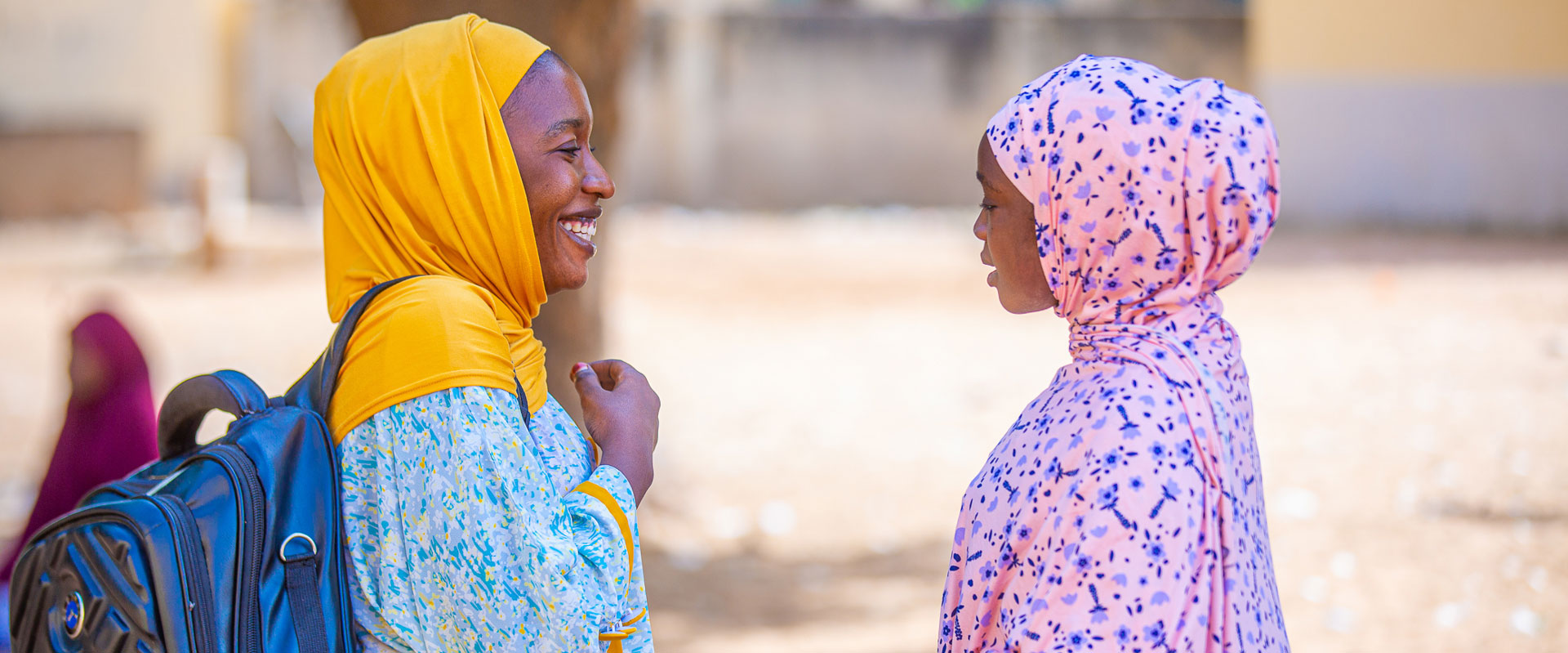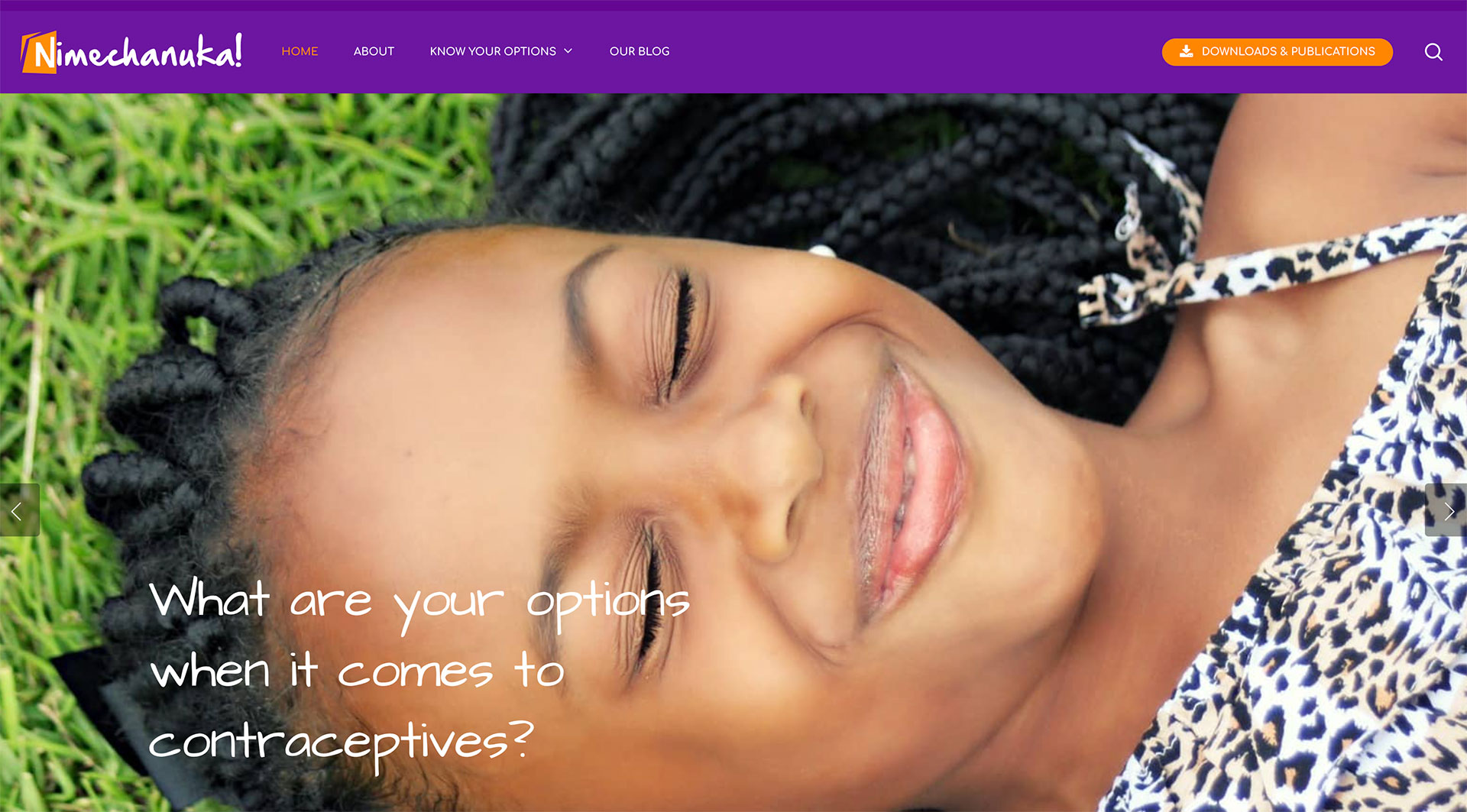When it comes to sexual and reproductive health, youth are their own best advocates—driving change, raising awareness and pushing for the health care and information they need most.
That’s why Ipas empowers young leaders to champion sexual and reproductive health and rights in their communities and globally. We support youth-led campaigns for abortion law change, train young peer educators, and partner with youth-led organizations that bring innovative solutions. We know young people are powerful advocates for reproductive justice because we see it firsthand every day.
Abortion access matters for youth
- Young women and girls account for nearly one-third of all unsafe abortion-related deaths each year globally.
- 15% of all unsafe abortions take place among adolescents ages 15-19.
Here are five ways young people are ensuring they and their peers have the knowledge, resources and ability to make their own informed decisions about their reproductive health.
1. Youth are peer educators and create social change around abortion
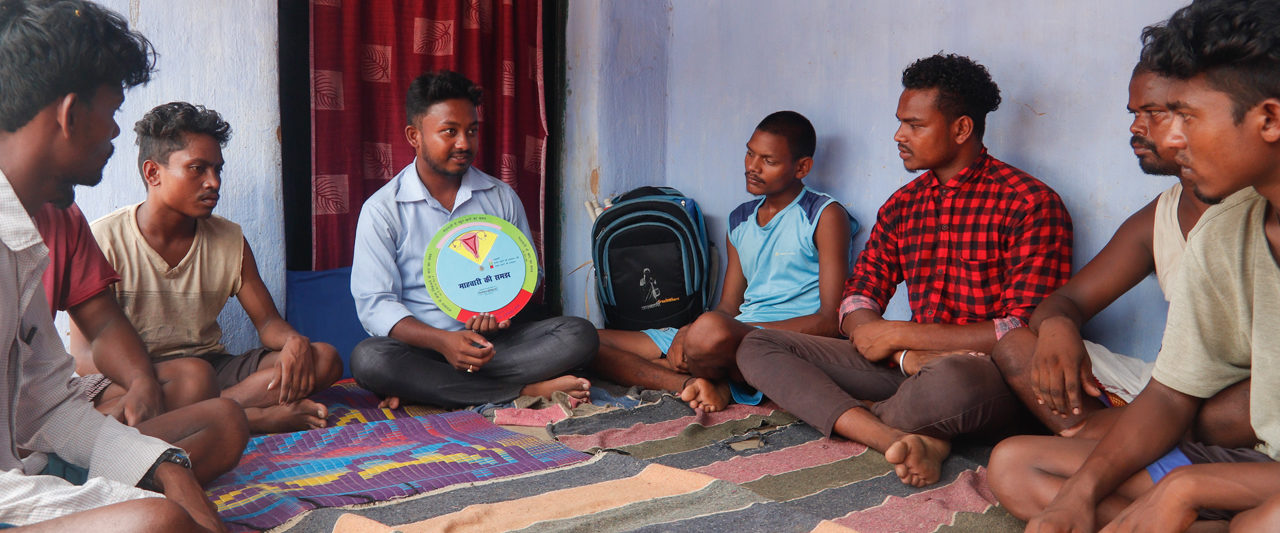
Pictured above: Pankaj Kumar Pan, a youth leader, talks to male members of the community about sexual and reproductive health issues.
“It was heartening for me to see that men were supportive of the reproductive health needs of their female family members and were approaching me for referrals.”
In India, youth leaders trained by the Ipas Development Foundation (IDF) worked to actively provide much-needed information on sexual and reproductive health, including contraception and pregnancy prevention, to the young men and women in their communities. They also referred young people for necessary care at local health centers.
In rural villages in Jharkhand State, India, men tend to make decisions about family matters. However, these youth leaders shared vital health information and showed how men can support women’s reproductive rights, ultimately chipping away at traditional gender roles.
“It was heartening for me to see that men were supportive of the reproductive health needs of their female family members and were approaching me for referrals,” said male youth leader Shashi Bhushan Soy.
2. Youth take control of their reproductive health—and help their friends—through comprehensive sexuality education
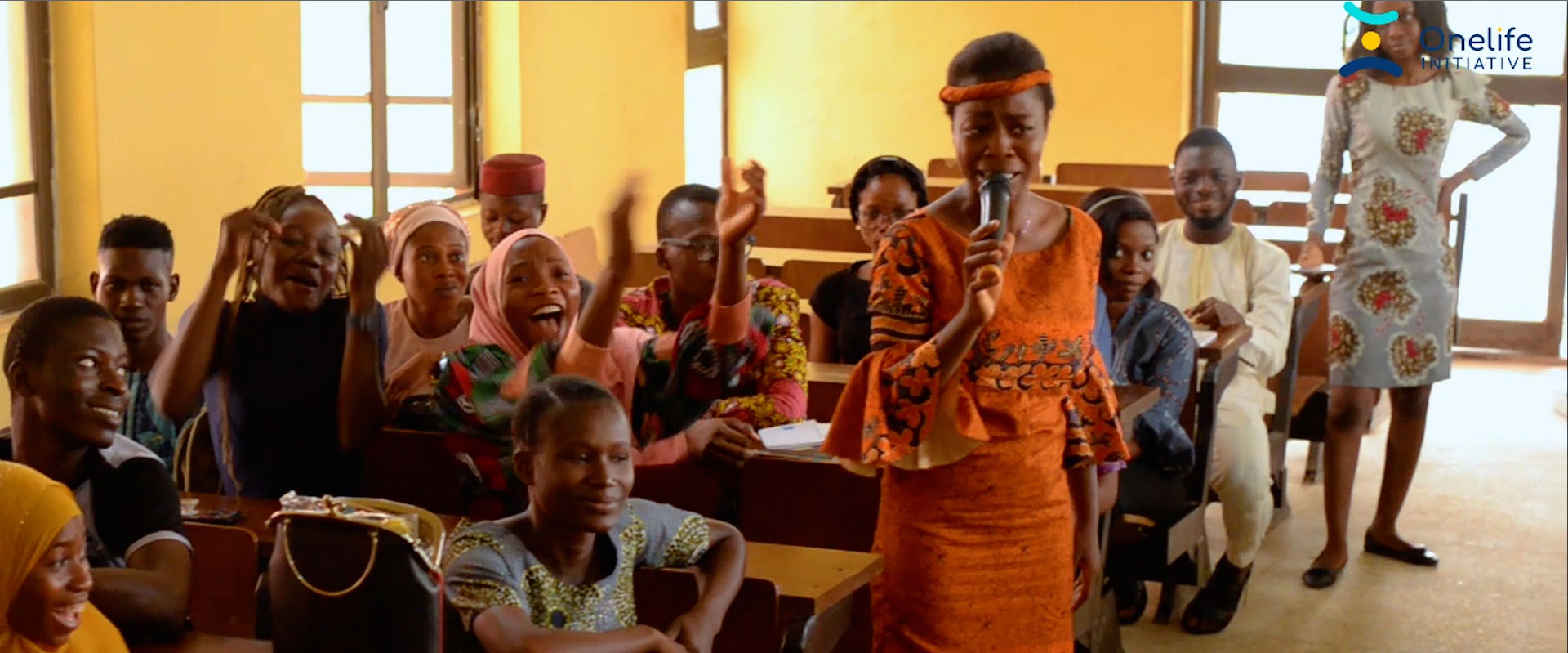
Pictured above: OneLife’s Campus Wey Sabi program in Oyo State, Nigeria.
Ipas’s local partner, Onelife Initiative for Human Development, has helped Nigerian college students take control of their sexual and reproductive health through a program called “Campus Wey Sabi,” a title which loosely translates to “campus that knows.” Through measuring student knowledge, training local health-care vendors, and hosting on-campus sessions with students and health providers, the program achieved significant results in just four months.
“I shared information with friends. We discussed menstrual health, the counting method of knowing when (sex) is safe or not, and unsafe abortion.” —Female student, group discussion participant
Learn more about the enthusiastic college students that made Campus Wey Sabi a success.
“I shared information with friends. We discussed menstrual health, the counting method of knowing when (sex) is safe or not, and unsafe abortion.”
3. Youth help lead grassroots movements for abortion law change
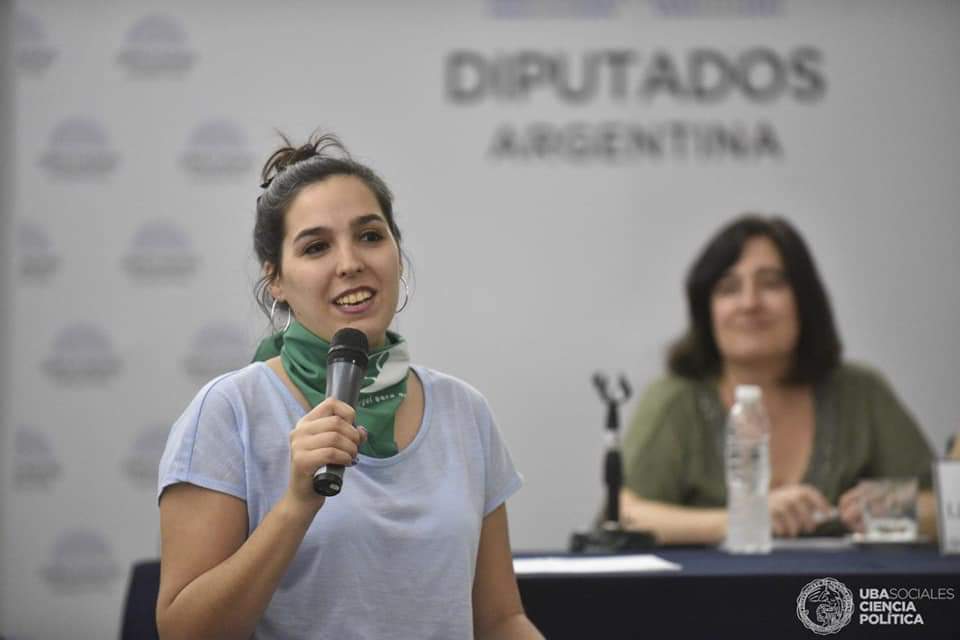
Youth activist Pamela Martín García, co-founder of Vecinas Feministas, a regional feminist network in Argentina.
“The Green Wave is made up of all of us. The Green Wave is for all of us.”
After Argentina’s historic move to legalize abortion, we interviewed dynamic youth activist Pamela Martín García, co-founder of Vecinas Feministas, a regional feminist network in Argentina. Her track record of sexual and reproductive health and rights advocacy in Latin America and the Caribbean is impressive, and her words about the Green Wave feminist movement inspired us greatly:
“The Green Wave is made up of all of us. The Green Wave is for all of us. The Green Wave is our female peers in Poland, our peers in Texas, our peers in Hidalgo, México, our peers in Chile, in Colombia, our peers who, each and every day try in places as hostile as some countries in Latin America and the Caribbean, where there is a total ban on abortion, and together we support each other, because we are also inspired by everything that has been, that has been achieved and is still being achieved.”
Watch this inspiring interview clip of Pamela Martín García.
4. Youth lead outreach efforts to connect people to vital reproductive health services
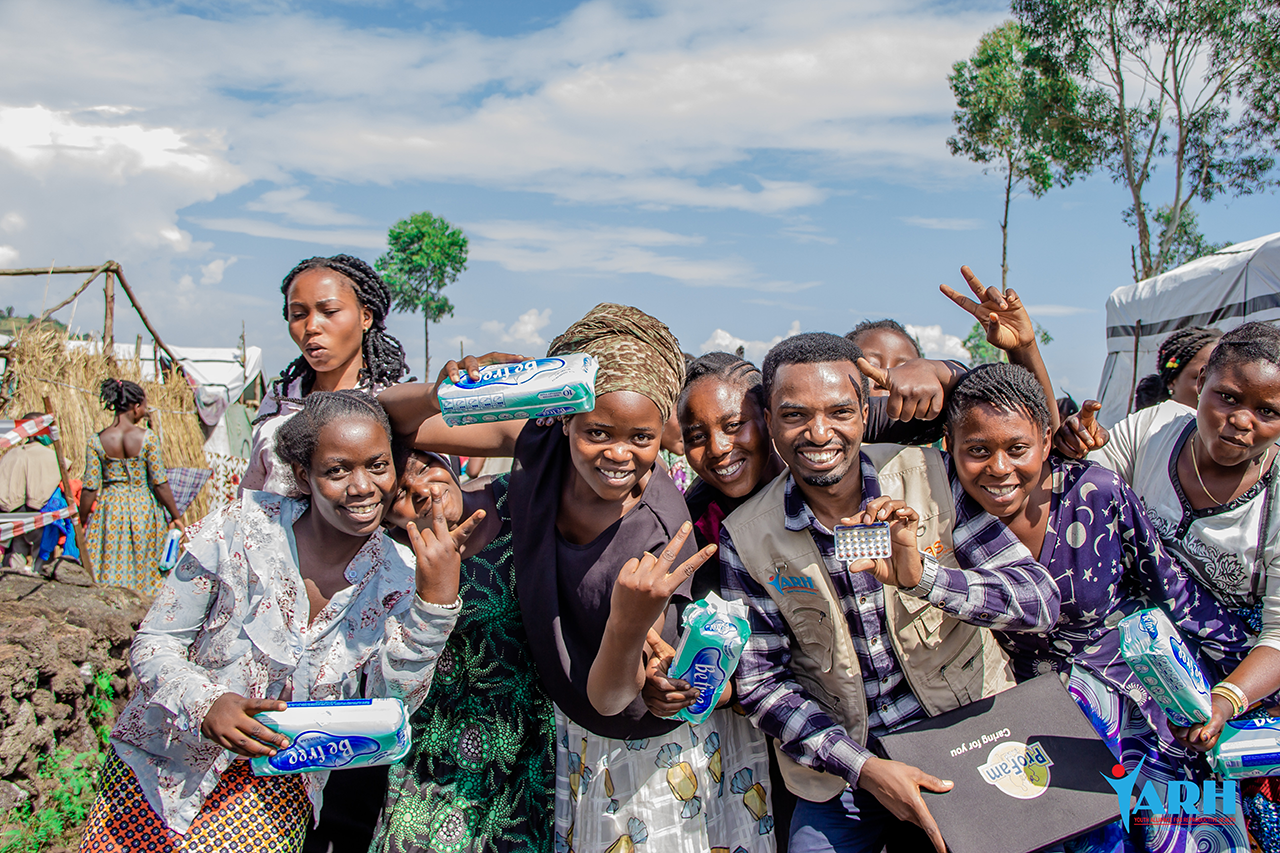
Dr. Simon Bine Mambo (shown center) and residents of a camp for displaced people pose with contraception and menstrual hygiene supplies available at a local clinic.
In the Democratic Republic of Congo, Ipas partners with the youth-led Mashujaa network of Youth Alliance for Reproductive Health (YARH) to provide outreach to people living in camps for those displaced by armed conflict. Raising awareness within the camp of available services that include abortion, these young volunteers provide referrals to essential services and even accompany women and girls to safely access care.
“As young people co-founding Youth Alliance for Reproductive Health, we have been solution makers in our community…for what is happening to our peers,” says Dr. Simon Bine Mambo, coordinator for YARH. “Believe in the power of young people, and you are going to see change.”
Read about the Mashujaa network’s impact in DRC’s Kanyaruchina camp.
“Believe in the power of young people, and you are going to see change.”
“They are also bold to explore innovative ideas, including digital technology and artificial intelligence, to advocate for and provide solutions to see their demands on abortion rights come to fruition. I strongly admire that.”
For nearly a decade, the award-winning Nimechanuka site—a digital platform supported by Ipas Africa Alliance—has provided young people with accurate information on contraceptives and access to safe abortion. The site also hosts online advocacy campaigns, interactive chats, and webinars. With Ipas’s support, they train young advocates to enhance their knowledge and skills in sexual and reproductive health and rights.
“Run by youth for the youth,” Nimechanuka demonstrates that young people can create and manage innovative digital solutions for their peers.
“Young advocates are showing resilience,” says Ipas board member Zainab Yunusa, herself a young advocate for gender equity and women’s and girls’ rights. “They are also bold to explore innovative ideas, including digital technology and artificial intelligence, to advocate for and provide solutions to see their demands on abortion rights come to fruition. I strongly admire that.”


